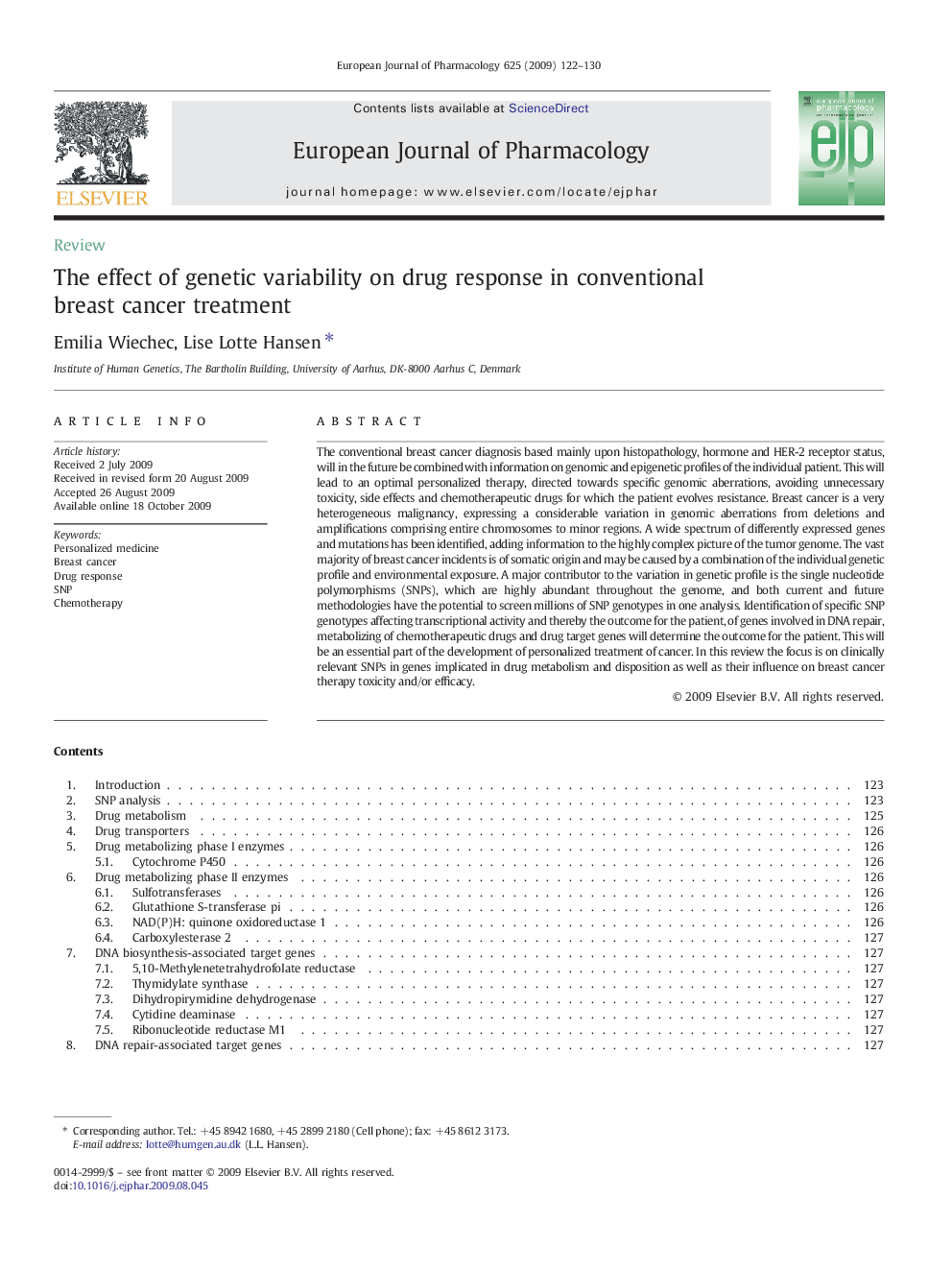| Article ID | Journal | Published Year | Pages | File Type |
|---|---|---|---|---|
| 2533977 | European Journal of Pharmacology | 2009 | 9 Pages |
The conventional breast cancer diagnosis based mainly upon histopathology, hormone and HER-2 receptor status, will in the future be combined with information on genomic and epigenetic profiles of the individual patient. This will lead to an optimal personalized therapy, directed towards specific genomic aberrations, avoiding unnecessary toxicity, side effects and chemotherapeutic drugs for which the patient evolves resistance. Breast cancer is a very heterogeneous malignancy, expressing a considerable variation in genomic aberrations from deletions and amplifications comprising entire chromosomes to minor regions. A wide spectrum of differently expressed genes and mutations has been identified, adding information to the highly complex picture of the tumor genome. The vast majority of breast cancer incidents is of somatic origin and may be caused by a combination of the individual genetic profile and environmental exposure. A major contributor to the variation in genetic profile is the single nucleotide polymorphisms (SNPs), which are highly abundant throughout the genome, and both current and future methodologies have the potential to screen millions of SNP genotypes in one analysis. Identification of specific SNP genotypes affecting transcriptional activity and thereby the outcome for the patient, of genes involved in DNA repair, metabolizing of chemotherapeutic drugs and drug target genes will determine the outcome for the patient. This will be an essential part of the development of personalized treatment of cancer. In this review the focus is on clinically relevant SNPs in genes implicated in drug metabolism and disposition as well as their influence on breast cancer therapy toxicity and/or efficacy.
